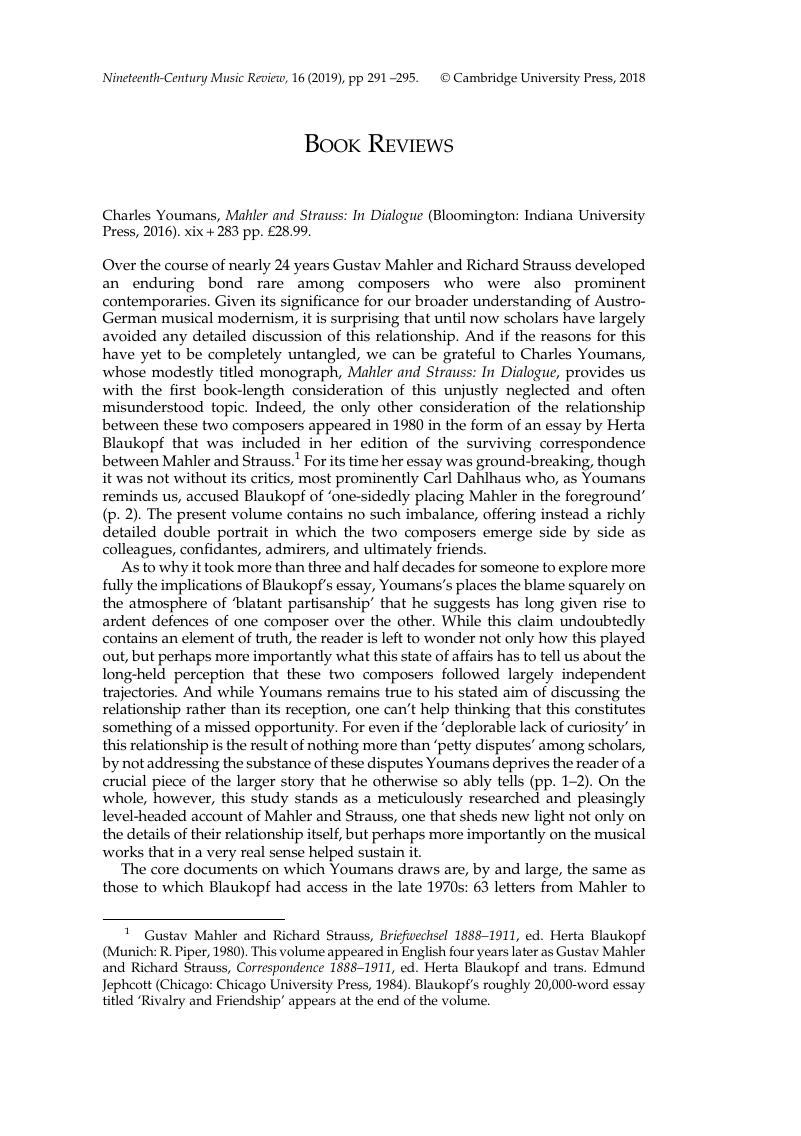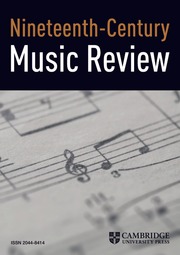No CrossRef data available.
Article contents
Charles Youmans, Mahler and Strauss: In Dialogue (Bloomington: Indiana University Press, 2016). xix+283 pp. £28.99.
Published online by Cambridge University Press: 27 March 2018
Abstract

- Type
- Book Reviews
- Information
- Copyright
- Copyright © Cambridge University Press, 2018
References
1 Mahler, Gustav and Strauss, Richard, Briefwechsel 1888–1911, ed. Herta Blaukopf (Munich: R. Piper, 1980)Google Scholar. This volume appeared in English four years later as Mahler, Gustav and Strauss, Richard, Correspondence 1888–1911, ed. Herta Blaukopf and trans. Edmund Jephcott (Chicago: Chicago University Press, 1984)Google Scholar. Blaukopf’s roughly 20,000-word essay titled ‘Rivalry and Friendship’ appears at the end of the volume.
2 If the conductor Fritz Busch is to be believed, Strauss apparently said of Mahler ‘he’s really no composer at all, just a very great conductor’. In his all-too brief discussion of this remark Youmans says only that this ‘surely overstates [Strauss’s] disdain’ (p. 13).
3 In the case of Mahler this topic has been addressed in some detail in Feder’s, Stuart ‘A Composer’s Childhood: The Auditory Environment’, in Neue Mahleriana: Essays in Honour of Henry-Louis de La Grange on His Seventieth Birthday, ed. Günther Weiss (Bern: Peter Lang, 1997), 27–38 Google Scholar.
4 While this is perhaps true in the case of Strauss, accounts of Mahler’s conducting activity within ‘broader contexts of compositional output and artistic philosophy’ are hardly in short supply. See especially, Schabbing, Bernd, Gustav Mahler als Konzert-und Operndirigent in Hamburg (Berlin: Verlag Ernst Kuhn, 2002)Google Scholar and Pickett, David, ‘Arrangements and Retuschen: Mahler and Werktreue ’, in The Cambridge Companion to Mahler, ed. Jeremy Barham (Cambridge: Cambridge University Press, 2007), 178–199 CrossRefGoogle Scholar.
5 This outburst was recorded by Strauss in his personal calendar in May of 1911. A facsimile of the page in question can be found in Stephan Kohler, ‘Richard Strauss. Eine Alpensinfonie op. 64’, Neue Zeitschrift für Musik 143 no. 11 (November 1982): 42–6. Youmans provides a complete English translation on p. 19 of Mahler and Strauss.


